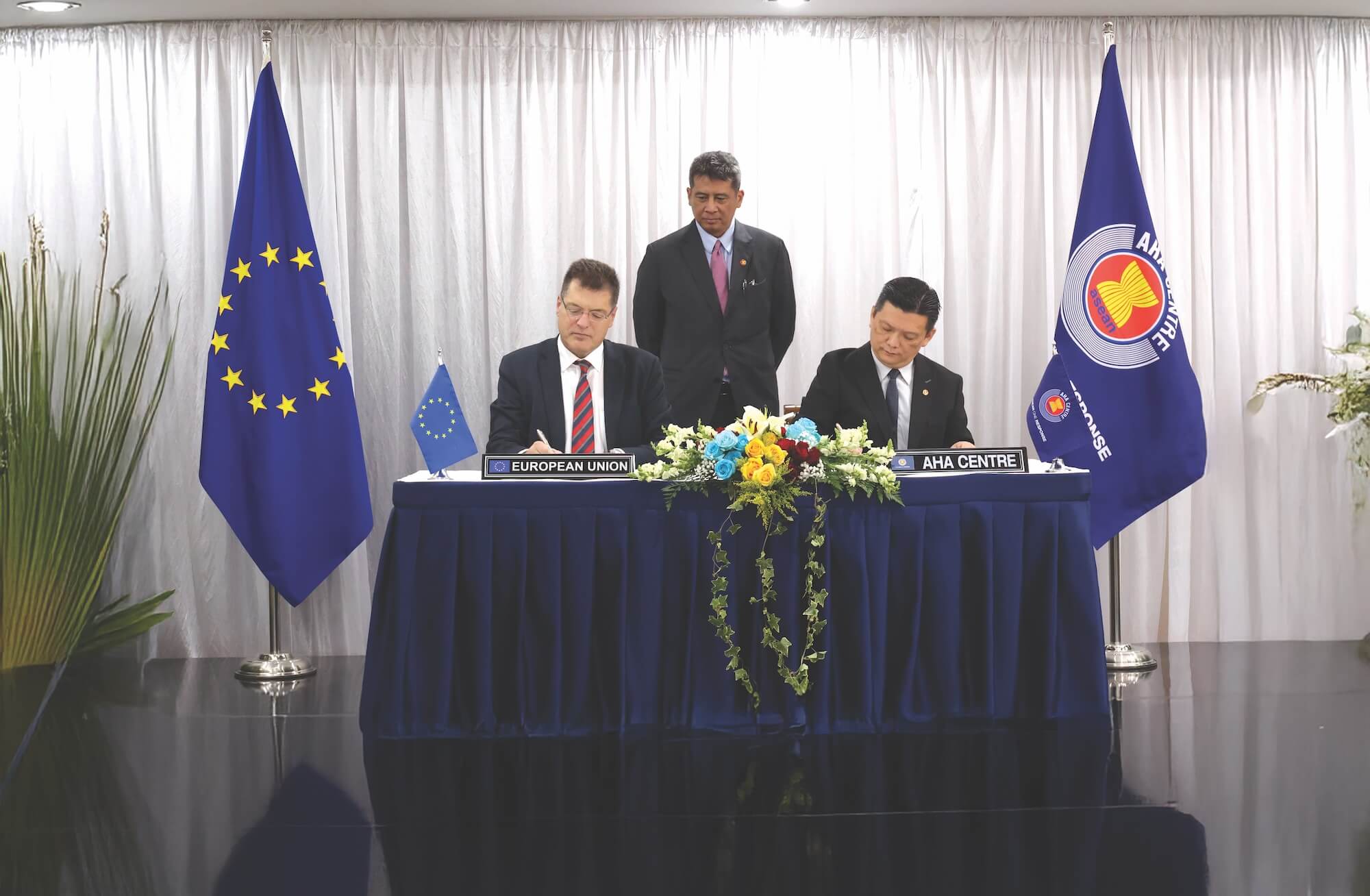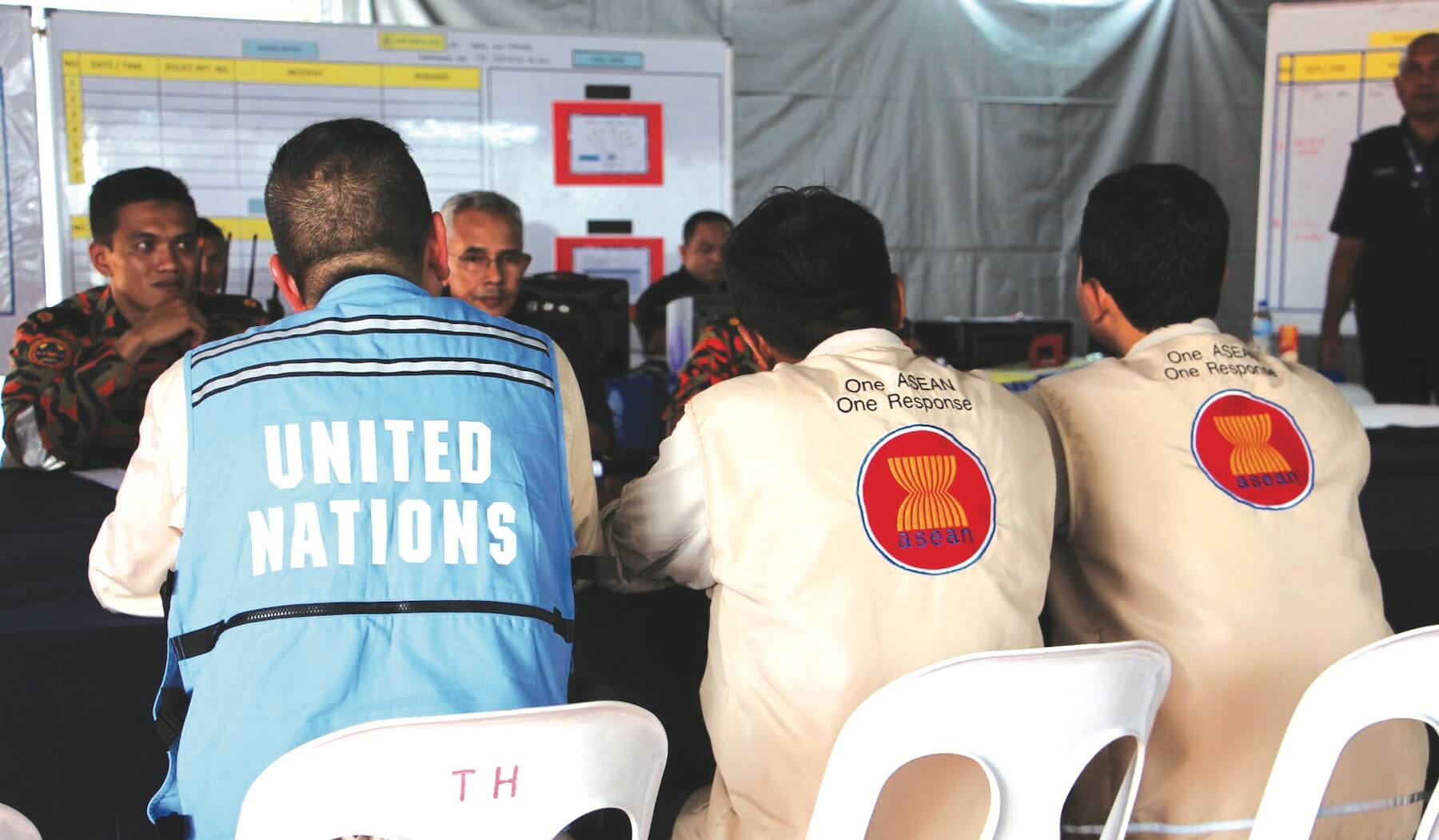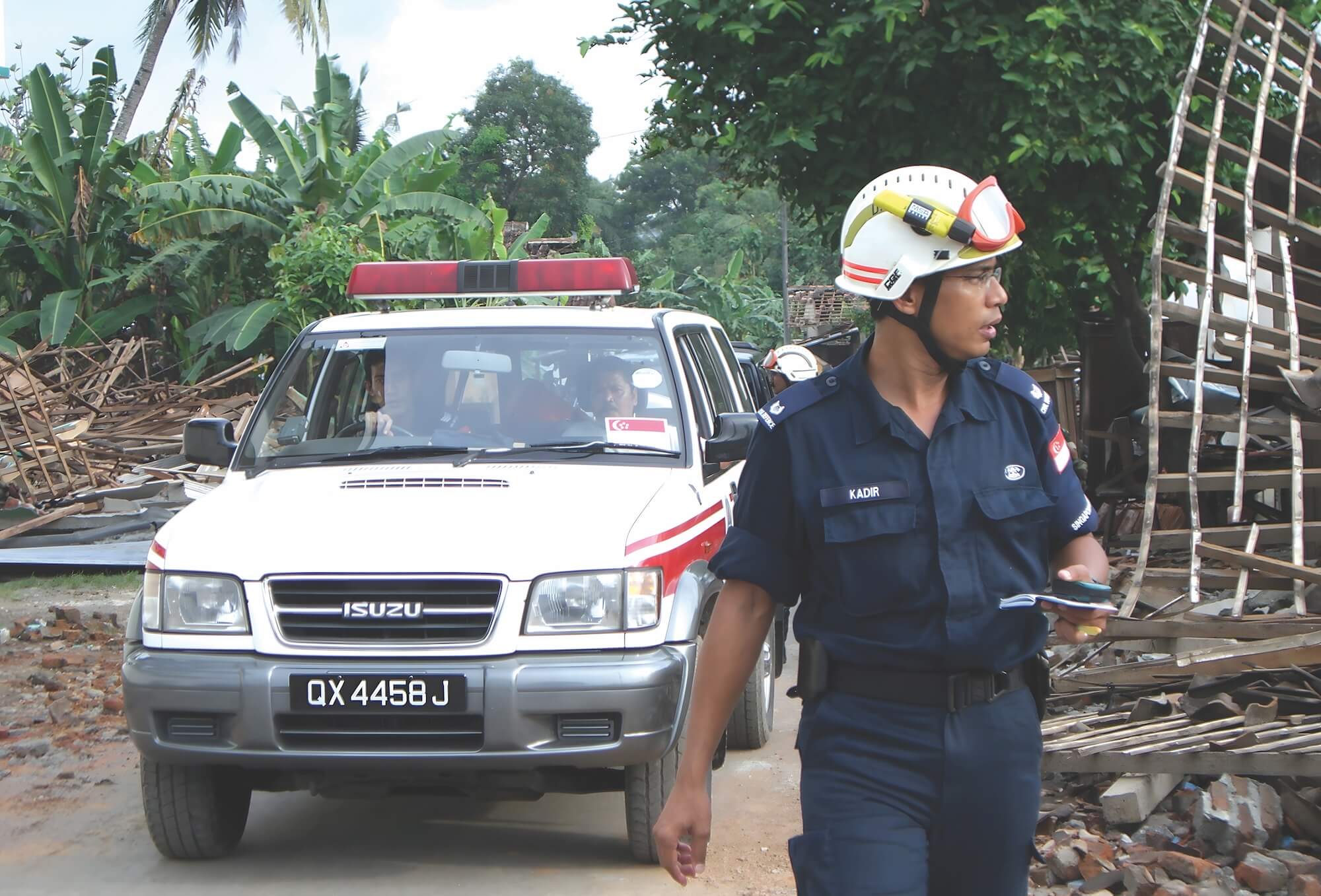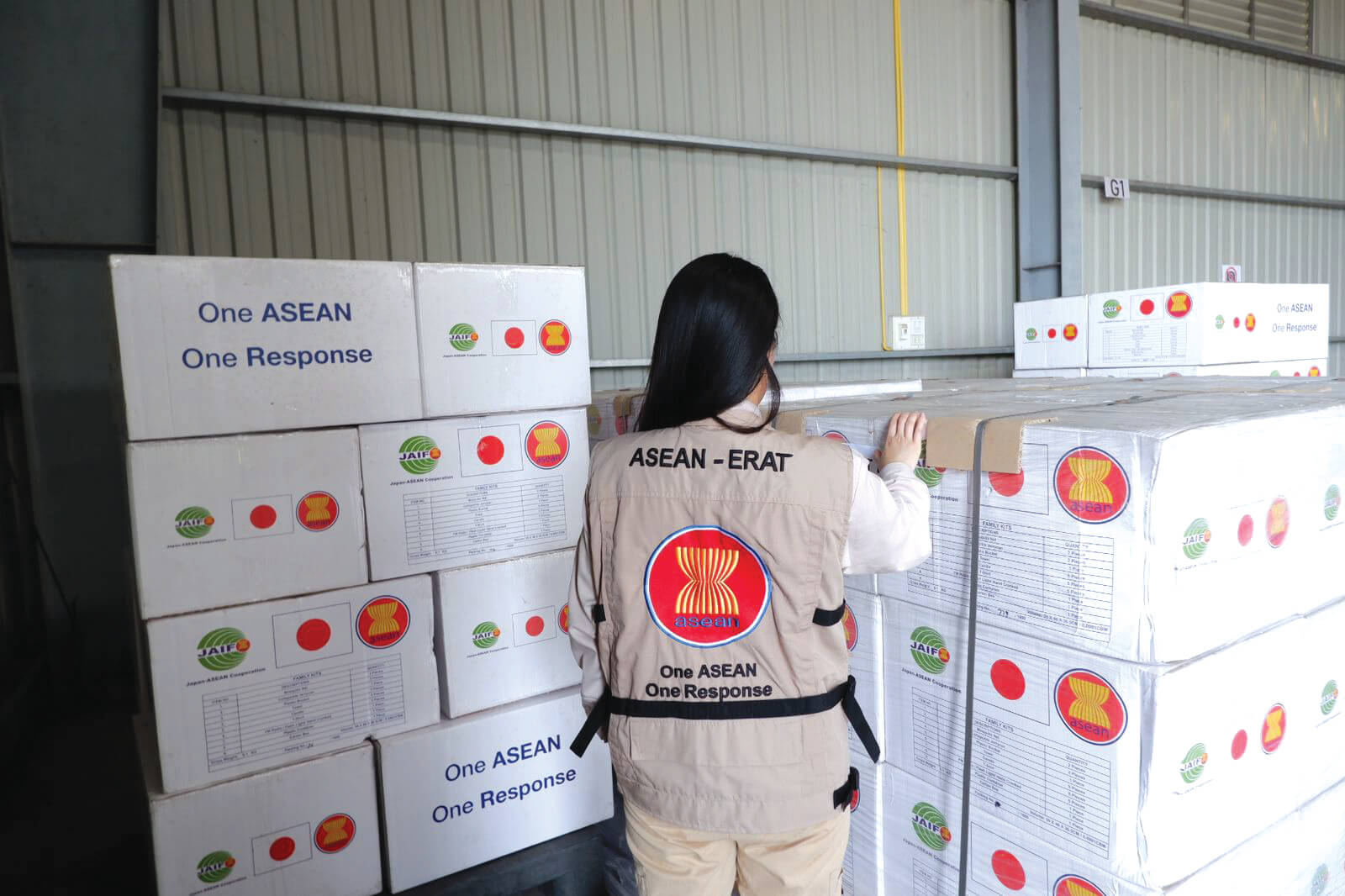



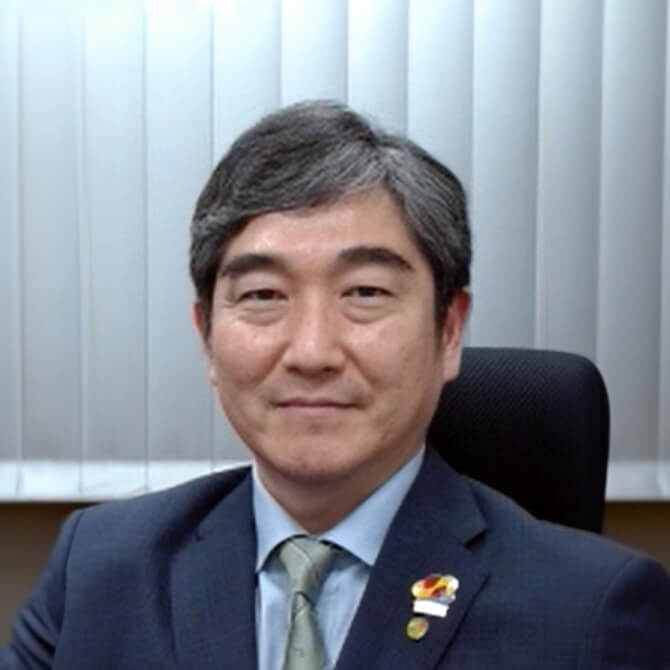
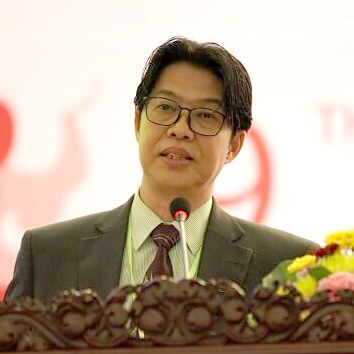
Many disasters may be inevitable as the forces of nature are increasingly becoming unpredictable and destructive. However, their adverse impacts can be reduced through effective collaboration, preparedness, and response. The value of such cooperation cannot be overstated. ASEAN, a region vulnerable to various natural and human-induced disasters, has been working with various partners to enhance its capacity and cooperation. One of the key partners in this endeavour is Japan, which established the Japan-ASEAN Integration Fund (JAIF) in 2006, following a pledge of then-Japanese Prime Minister Koizumi Junichiro at the 9th ASEAN-Japan Summit held in Kuala Lumpur, Malaysia in December 2005. Since then, JAIF has stood out as a pioneering development cooperation instrument that has contributed significantly to ASEAN’s journey towards effective disaster management and the creation of resilient communities.
Japan’s support for ASEAN in disaster management spans more than 50 years. It is deeply rooted in its strategic partnership with ASEAN and associated entities, particularly the ASEAN Coordinating Centre for Humanitarian Assistance on disaster management (AHA Centre). Supported by JAIF, the AHA Centre was set up and became operational in 2011. The ASEAN Agreement on Disaster Management and Emergency Response (AADMER) Work Programme 2021-2025 was also developed with the help of JAIF as a token of Japan’s unwavering commitment to disaster risk reduction and resilience building in ASEAN, and to realise “One ASEAN, One Response” across the region.
JAIF: A catalyst for positive change and progress
A primary purpose of JAIF is to support the efforts of the ASEAN Member States to pursue the comprehensive integration of ASEAN towards the realisation of an open, dynamic, and resilient ASEAN Community as envisaged in the Declaration of ASEAN Concord II (Bali Concord II). While promoting greater cooperation between ASEAN and Japan and addressing emerging regional challenges, JAIF has also played a vital role in the implementation of the ASEAN 2025 Blueprints of the ASEAN Political-Security Community, ASEAN Economic Community, and ASEAN Socio-Cultural Community with a particular emphasis on narrowing development gaps among the ASEAN Member States.
Since its establishment, JAIF has financed nearly 600 projects across various domains, including responses to the COVID-19 pandemic, mobilising more than 887 million US dollars in total funding. One of the key pillars of JAIF’s support is enhancing ASEAN’s capacity and readiness to respond to disaster emergencies and reduce disaster risks in the region, which is anchored in the Vision Statement on ASEAN-Japan Friendship and Cooperation adopted in December 2013, its Revised Implementation Plan in August 2017, and the ASEAN Outlook on the Indo- Pacific (AOIP) adopted in June 2019. Japan’s interventions are also guided by the ASEAN-Japan Work Plan on Disaster Management 2021-2025. The progress of the Work Plan is regularly assessed and followed up on by the ASEAN-Japan Ministerial Meeting on Disaster Management (AMMDM Plus Japan) and reviewed by the ASEAN Committee on Disaster Management (ACDM) Plus Japan.
Empowering ASEAN communities through capacity building
The first concrete action taken by JAIF in this endeavour dates back to January 2008 when the project “Utilization of Satellite Image on Disaster Management” commenced with the Asian Disaster Reduction Center acting as both the proponent and the implementing agency. The project facilitated collaboration between disaster management and satellite imagery experts. It promoted the practical use of satellite imagery for disaster mitigation and response, a relatively new technology to the stakeholders of disaster management communities in the region at that time.
To date, ASEAN and Japan have collaborated and delivered more than 40 projects in disaster management in the amount of nearly 80 million US dollars. Notable achievements include the establishment and operationalisation of the AHA Centre. Built on the first-ever project of this kind in the region, the project “Setting Up and Operationalisation of the AHA Centre” significantly enhanced ASEAN’s capacity to monitor, assess, and respond to disasters in a timely and effective manner. JAIF has since partnered with the AHA Centre and assisted in enhancing its core emergency preparedness and response functions through such initiatives as the development of an integrated information and communication technology (ICT) infrastructure and system, the Disaster Emergency Logistics System for ASEAN (DELSA), the transformation of ASEAN-Emergency Response and Assessment Team (ASEAN-ERAT), and the AHA Centre Executive (ACE) Programme.
Between 2012 and 2024 alone, 37 disaster emergency operations were undertaken in eight ASEAN countries: Indonesia, the Lao PDR, Malaysia, Myanmar, the Philippines, Viet Nam, Thailand, and Cambodia. Funded by JAIF, a series of DELSA projects rapidly deployed the relief items, stockpiled in the regional warehouse in Malaysia and the satellite warehouses in Thailand and the Philippines, to affected countries during major disasters, including a devastating flood that hit Kelantan, Malaysia, in 2015, and Typhoon Gaemi which caused significant damage in the Philippines in 2024.
In fostering a cadre of disaster management professionals and leaders, JAIF has supported engaging qualified national experts from the ASEAN Member States and Timor-Leste in the intensive ACE and ERAT programmes conducted by the AHA Centre. The programmes cover various topics, such as disaster risk management, humanitarian coordination, leadership, and communication skills, complemented by field visits and simulation exercises. Since 2014, 1,034 experts have been trained to become national and regional disaster management professionals with strong confidence and responsibility through 54 JAIF-funded ACE, ERAT, and DELSA training courses.
Hjh Nora binti Hj Md Yusof, Head of Emergency Medical Ambulance Services, Brunei Darussalam, recalls her experience in an ERAT training, “the most important thing is to maintain regional standardisation. To have standardisation, we must unite and that’s what JAIF is doing through ERAT programmes. JAIF unites all ASEAN Member States and creates first responders who are certified and able to work in other countries.”
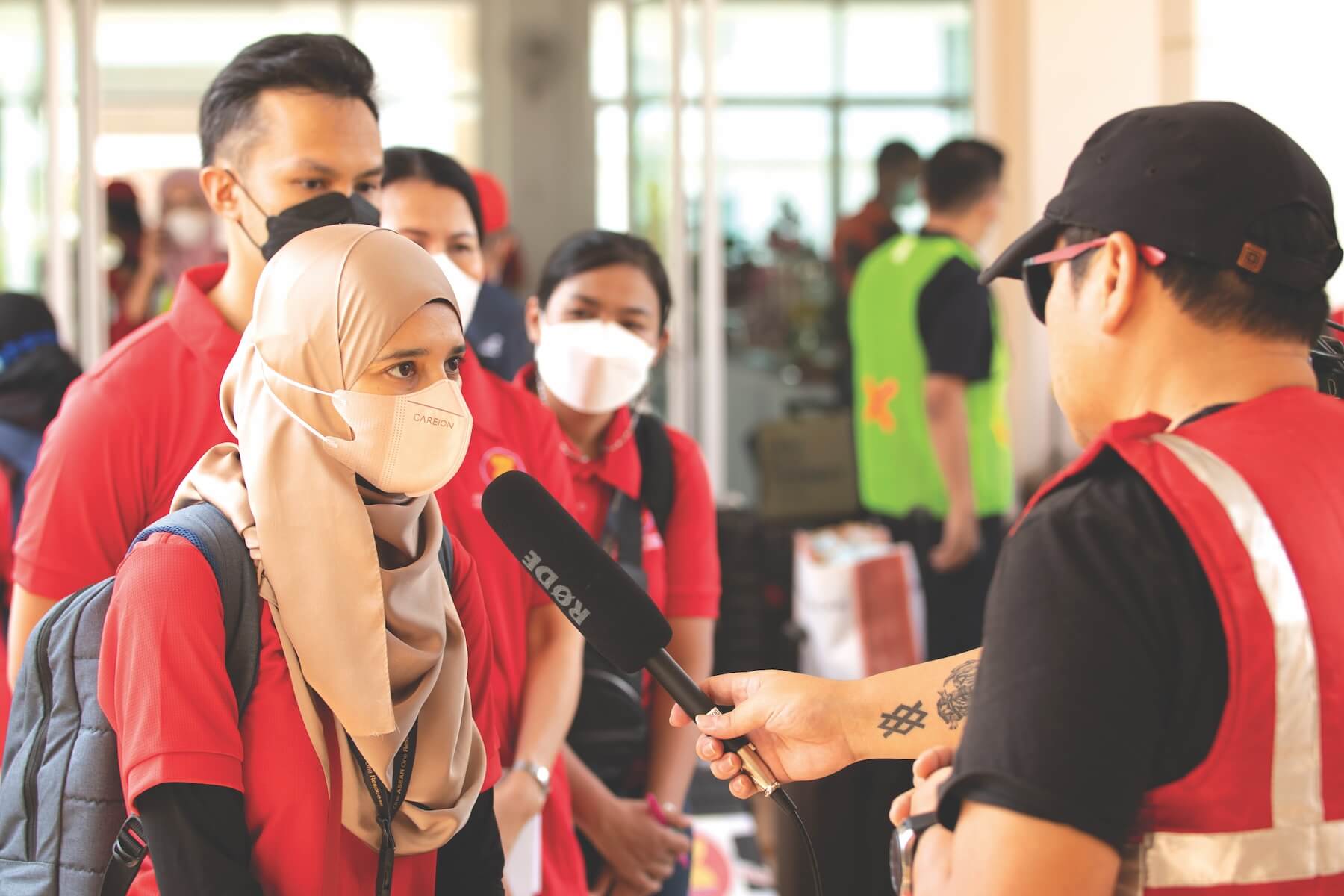
A shared vision for resilient communities: building a robust policy framework
The ASEAN-Japan collaboration over the years has ushered in significant advancements in disaster management coordination and cooperation. At the heart of the partnership lies AADMER: a comprehensive framework designed to respond collectively to emergencies, mobilise and invest effectively, and ultimately enhance disaster resilience in the region. JAIF’s support was instrumental in translating AADMER into concrete actions by formulating the AADMER Work Programme 2021-2025, which was endorsed at the 8th AMMDM in November 2020. This five-year strategic roadmap aims to further enhance ASEAN’s resilience and adaptive capacity to disasters by addressing five strategic components: risk assessment and monitoring, prevention and mitigation, preparedness and response, resilient recovery, and global leadership. A mid-term review of the implementation of the AADMER Work Programme 2021-2025 was concluded in December 2023. Based on the lessons learned, the development of the AADMER Work Programme 2026-2030 is currently underway and is expected to guide ASEAN through further strengthening disaster resilience in the region and enhancing its role to be a global leader in disaster management.
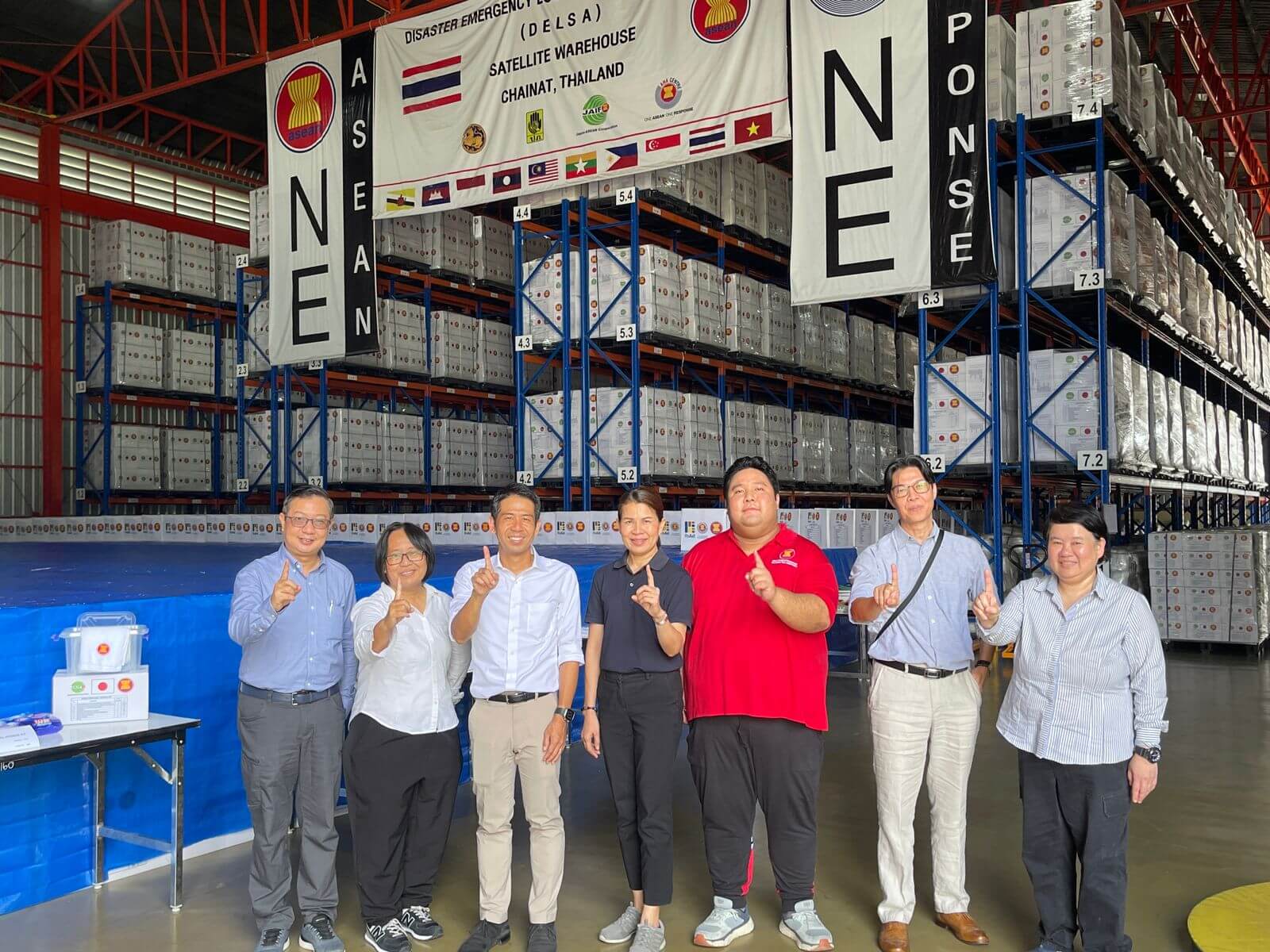
Sustaining momentum for a resilient future and Japan’s unwavering commitment
In his policy speech delivered at the Indian Council of World Affairs (ICWA) in March 2023, where a Japan’s New Plan for a “Free and Open Indo-Pacific” was rolled out, Former Japanese Prime Minister KISHIDA Fumio reaffirmed announcing a new contribution of 100 million US dollars to JAIF. He also expressed his intention to support the disaster management efforts in the region, “To help countries build resilient societies, both in terms of disaster prevention and recovery, Japan will harness its expertise and technology to provide support including for improving disaster prevention and response capacity.”
As we look ahead, the partnership between ASEAN and Japan continues to hold immense potential. The successes achieved thus far serve as a strong foundation for future endeavours in disaster management. Japan’s unwavering commitment will not just finish with the goal of building stronger communities. It will also consolidate bonds, strengthen solidarity, and ensure that the ASEAN region is better equipped to respond to whatever new threats lie ahead. Guided by the AADMER Work Programme 2021-2025 and other related initiatives, JAIF is poised to safeguard the lives and livelihoods of millions across the region. Together, ASEAN and Japan will navigate the challenging path towards a safer, more resilient, and sustainable future.
The information contained in this article represents the views and opinions of the authors and does not necessarily reflect the views or opinions of the Government of Japan.




